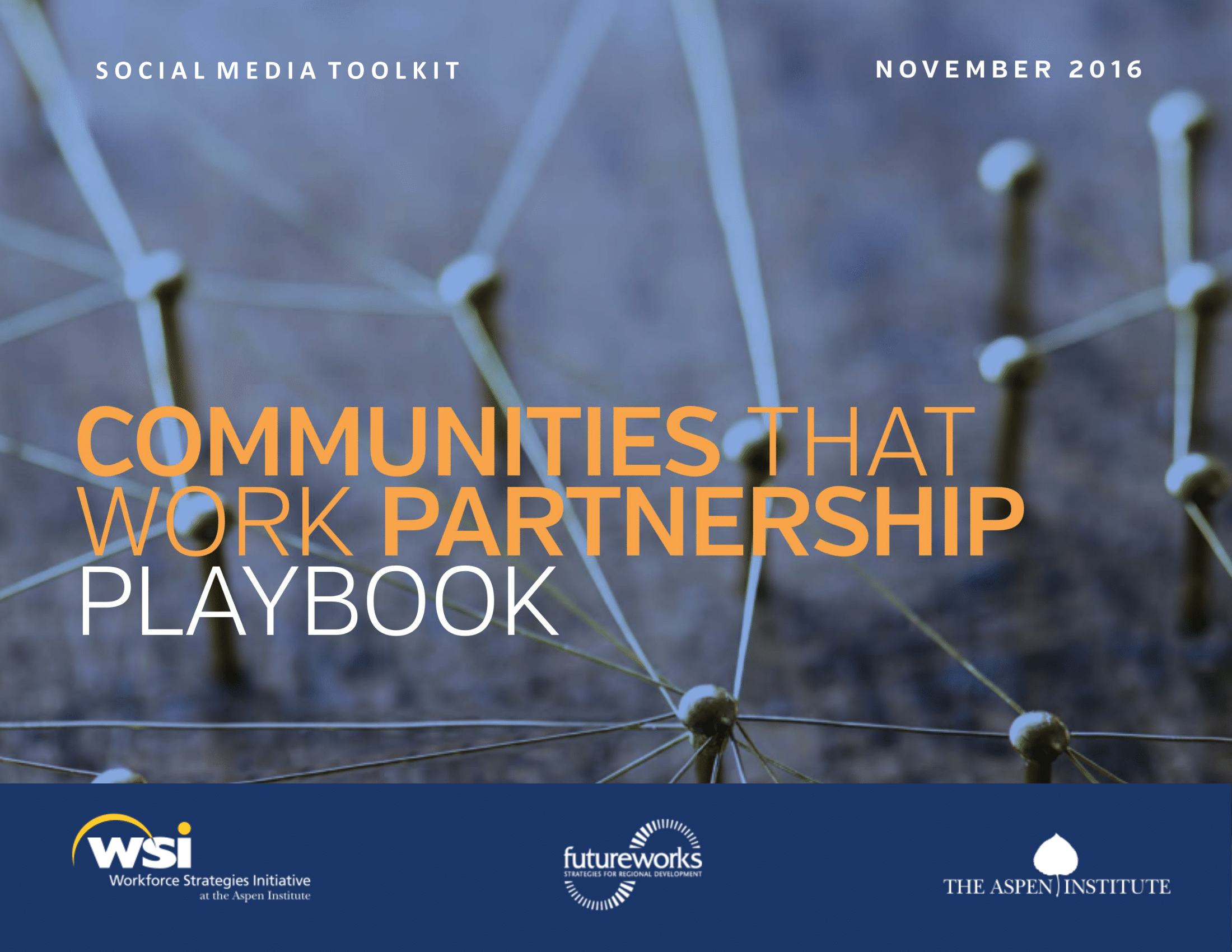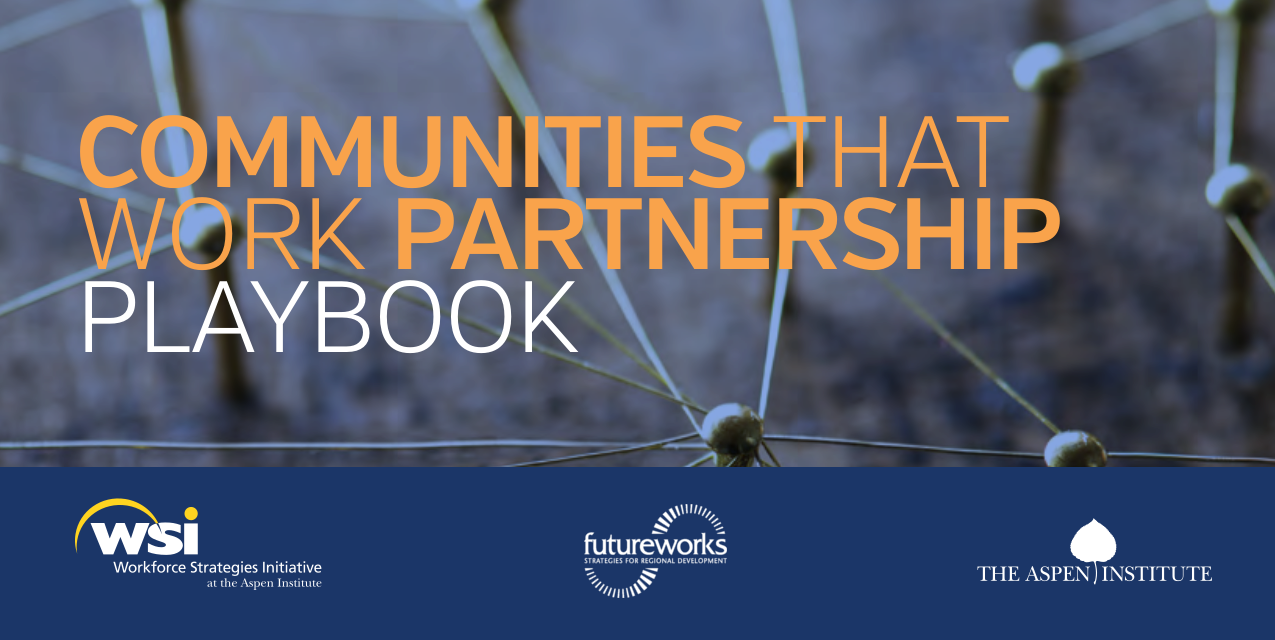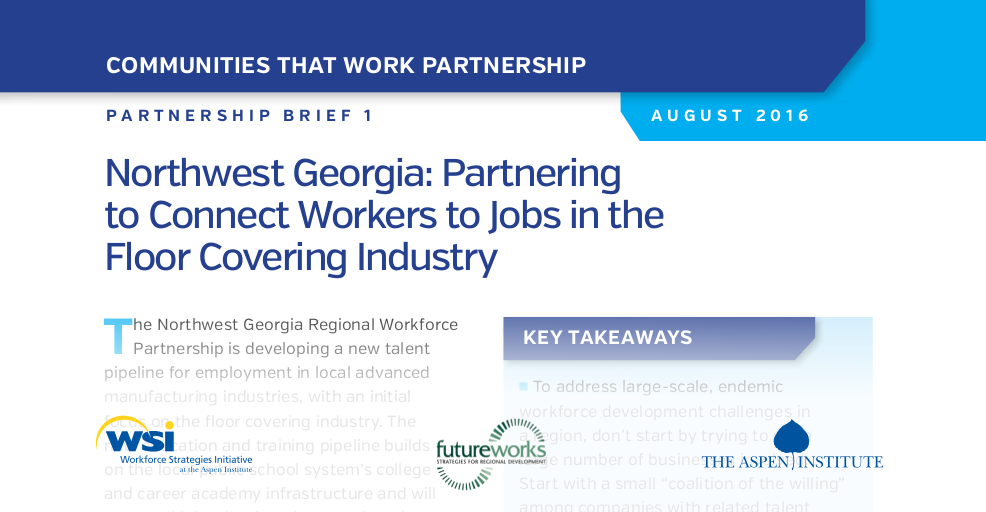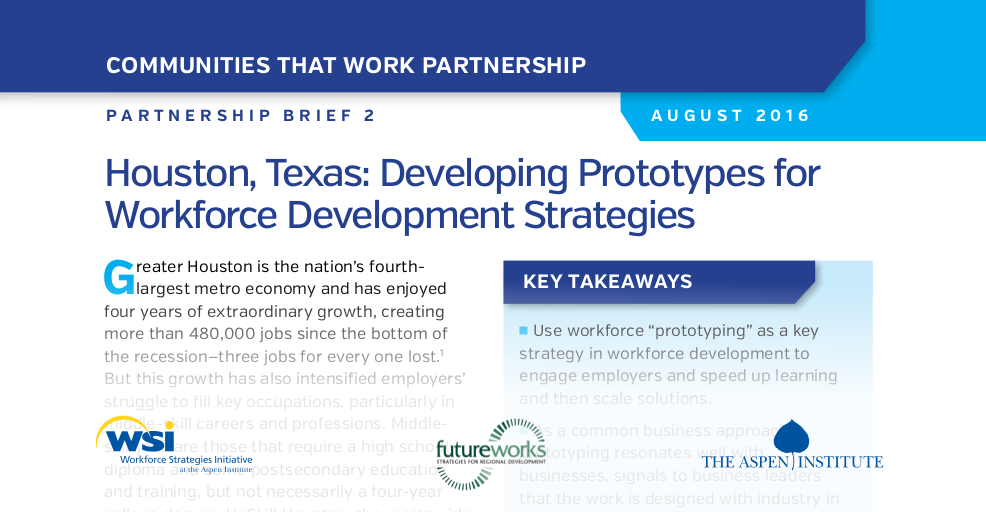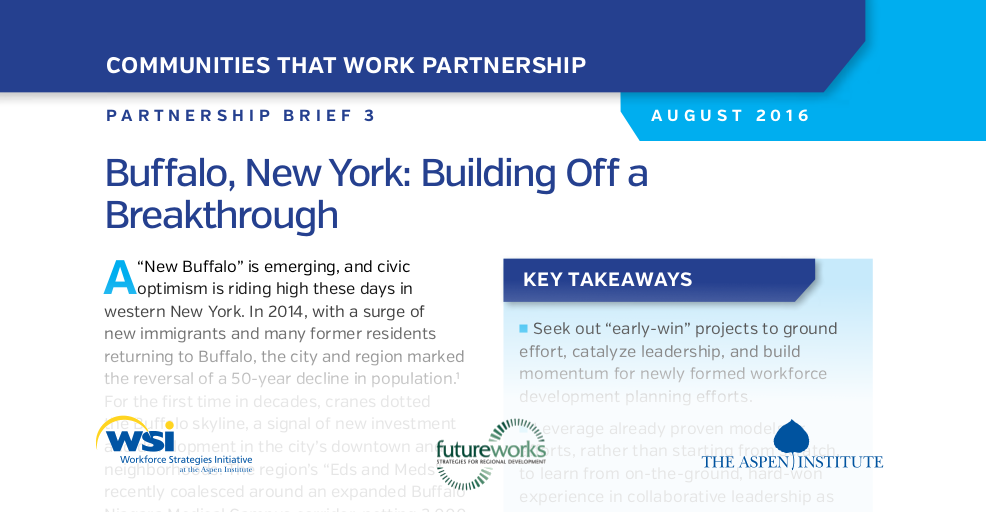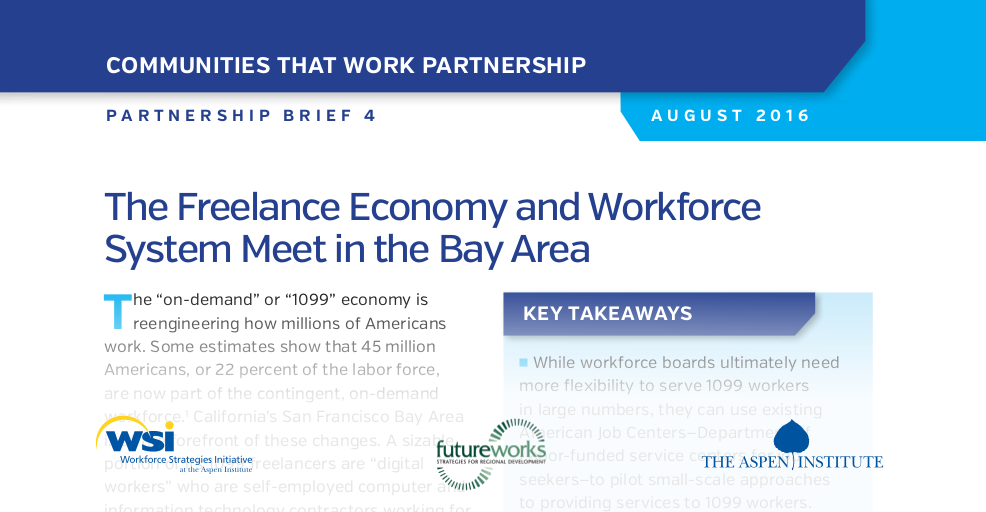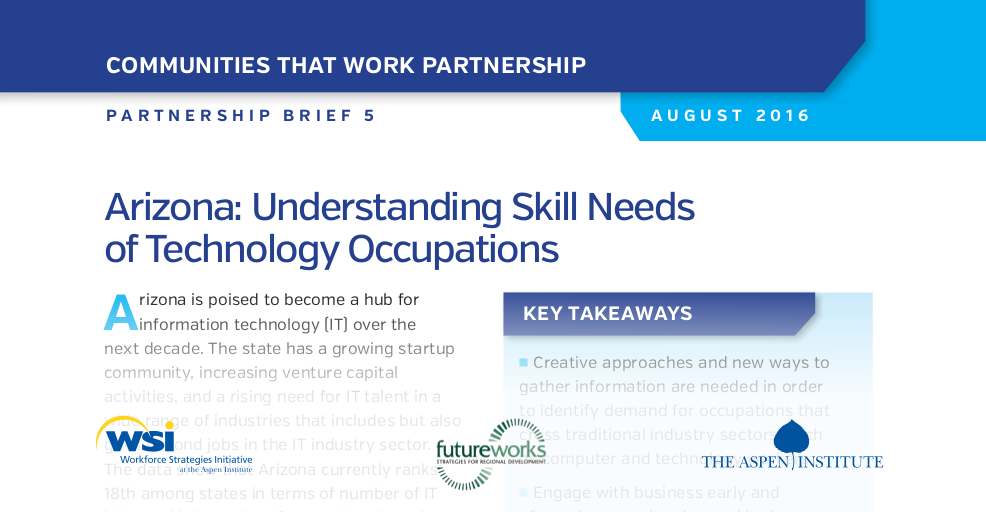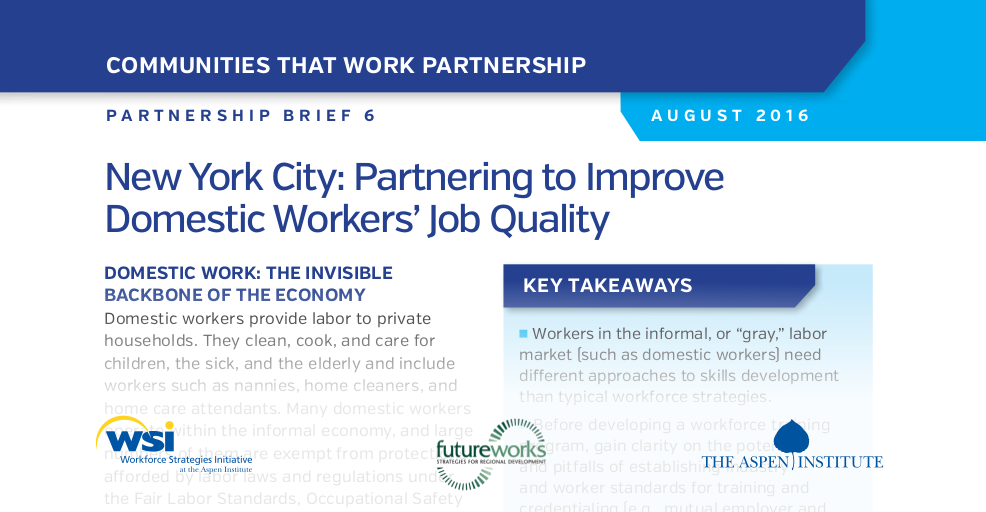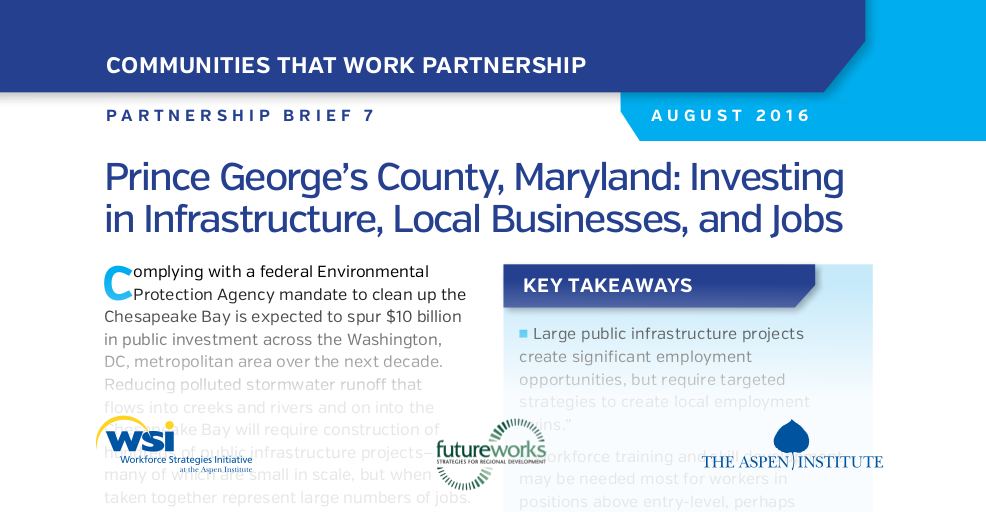Skilled workers and good jobs are essential for ensuring robust economic growth, a thriving middle class, and broadly shared prosperity. Increasingly, companies and public agencies — including those in education, workforce, and economic development — are partnering to design innovative ways for workers to gain skills and earn credentials that companies will value and reward. These efforts facilitate the creation of good jobs, support strong businesses, and build healthy communities.
In April 2015, the Aspen Institute Workforce Strategies Initiative jointly launched the Communities that Work Partnership with the US Economic Development Administration. The purpose of this initiative was to document and accelerate the development of employer-led regional workforce initiatives across the country. Seven competitively-selected sites — in Arizona, California, the District of Columbia, Georgia, New York (upstate and NYC), and Texas — participated in a learning exchange focused on bridging economic and workforce development to strengthen local talent pipelines and improve access to quality employment.
As the Communities that Work Partnership draws to a close, this guide is intended to help share the lessons, accomplishments, and future directions of the initiative and individual partnership sites. Below, you’ll find a selection of ready-to-share social media posts and graphics.
Sample Tweets
What does it take to create #communitiesthatwork? Find out at as.pn/ctwp
Download the #communitiesthatwork playbook & learn key takeaways from the sites that participated: as.pn/ctwp
From Buffalo to the Bay Area, there are #communitiesthatwork all across the country. Learn more about them at as.pn/ctwp
Business & government can create good jobs through innovative partnerships. Learn how at as.pn/ctwp #communitiesthatwork
#communitiesthatwork partnerships help workers gain skills and earn credentials that companies will value and reward. Learn more: as.pn/ctwp
How are the public, private, & nonprofit sectors uniting to build #communitiesthatwork? Find out at as.pn/ctwp
Sample Facebook Posts
What does it take to create #communitiesthatwork? Learn how the public, private, and nonprofit sectors are uniting to boost regional workforce initiatives all across the country by visiting as.pn/ctwp
From Buffalo to the Bay Area, there are #communitiesthatwork all across the country. Businesses and government are increasingly partnering to design innovative ways for workers to gain skills and earn credentials that companies will value and reward, helping to create good jobs, support strong businesses, and build healthy communities. Learn more at as.pn/ctwp
As part of the #CommunitiesThatWork Partnership, seven sites participated in a learning exchange focused on bridging economic and workforce development to strengthen local talent pipelines and improve access to quality employment. Explore lessons, accomplishments, future directions, and more by visiting as.pn/ctwp
Graphics
About the Communities that Work Partnership
Skilled workers and good jobs are essential for ensuring robust economic growth, a thriving middle class, and broadly shared prosperity. Increasingly, companies and public agencies — including those in education, workforce, and economic development — are partnering to design innovative ways for workers to gain skills and earn credentials that companies will value and reward. These efforts facilitate the creation of good jobs, support strong businesses, and build healthy communities.
In April 2015, the Aspen Institute Workforce Strategies Initiative jointly launched the Communities that Work Partnership with the US Economic Development Administration. The purpose of this initiative was to document and accelerate the development of employer-led regional workforce initiatives across the country. Seven competitively-selected sites — in Arizona, California, the District of Columbia, Georgia, New York (upstate and NYC), and Texas — participated in a learning exchange focused on bridging economic and workforce development to strengthen local talent pipelines and improve access to quality employment.
Join the conversation on Twitter using the hashtag #communitiesthatwork.
Tweets by AspenWorkforce